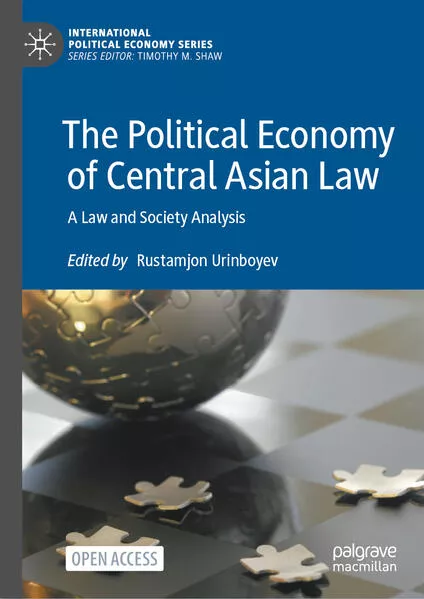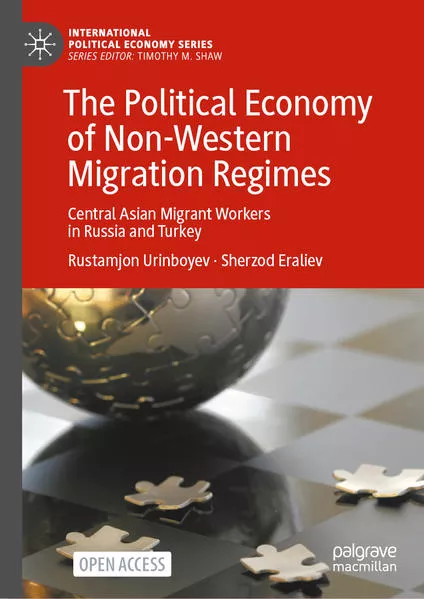
- Publikationen ca: 5
- Buchbewertungen ca: 2
- Fragen & Antworten
Rustamjon Urinboyev
Rustam Urinboyev is Associate Professor in the Department of Sociology of Law at Lund University, Sweden and Senior Researcher in Aleksanteri Institute, University of Helsinki, Finland.
Sherzod Eraliev is Academy of Finland postdoctoral fellow at Aleksanteri Institute, University of Helsinki, Finland.
The Political Economy of Central Asian Law
This open-access book provides fresh and much-needed insights into the interconnections between law, society and governance in Central Asia. By taking the interdisciplinary perspective of law and society, the book explores the social life of law and legal institutions in Central Asia in broader terms, encompassing not only the state legal system and institutions but also various informal (non-legal) forms of normative ordering.
The Political Economy of Central Asian Law
This open-access book provides fresh and much-needed insights into the interconnections between law, society and governance in Central Asia. By taking the interdisciplinary perspective of law and society, the book explores the social life of law and legal institutions in Central Asia in broader terms, encompassing not only the state legal system and institutions but also various informal (non-legal) forms of normative ordering.
The Political Economy of Non-Western Migration Regimes
This open access book contributes new theoretical and comparative insights on migrant agency, undocumentedness and informality in non-Western, non-democratic migration regimes. The book is conceived as a critical reflection on the contemporary migration regime scholarship, and, more generally, on comparative migration studies, which primarily focus on migrants’ experiences and immigration policies in the context of liberal democracies in North America and Western Europe.
The Political Economy of Non-Western Migration Regimes
This open access book contributes new theoretical and comparative insights on migrant agency, undocumentedness and informality in non-Western, non-democratic migration regimes. The book is conceived as a critical reflection on the contemporary migration regime scholarship, and, more generally, on comparative migration studies, which primarily focus on migrants’ experiences and immigration policies in the context of liberal democracies in North America and Western Europe.
The Political Economy of Non-Western Migration Regimes
This open access book contributes new theoretical and comparative insights on migrant agency, undocumentedness and informality in non-Western, non-democratic migration regimes. The book is conceived as a critical reflection on the contemporary migration regime scholarship, and, more generally, on comparative migration studies, which primarily focus on migrants’ experiences and immigration policies in the context of liberal democracies in North America and Western Europe.




